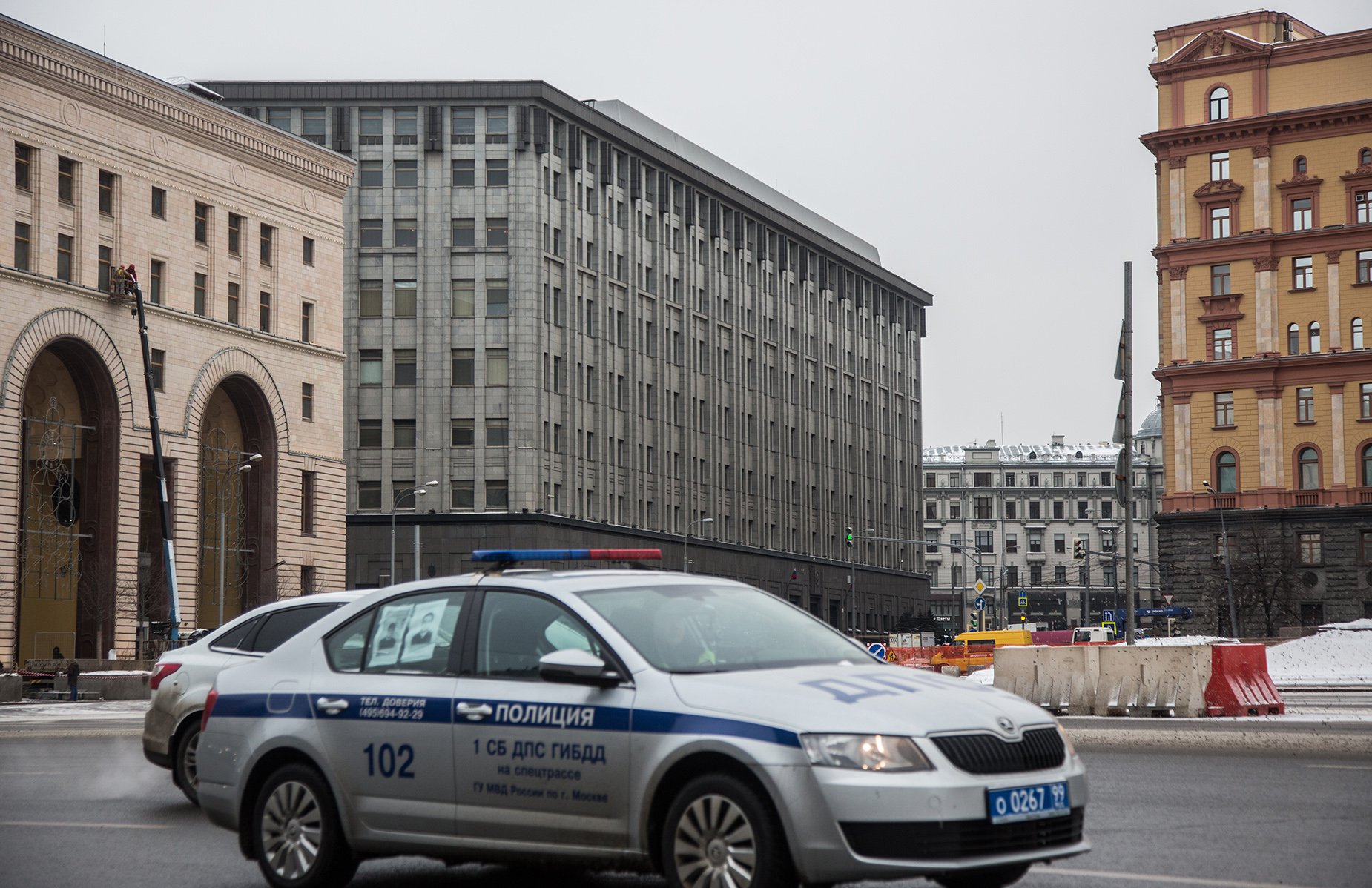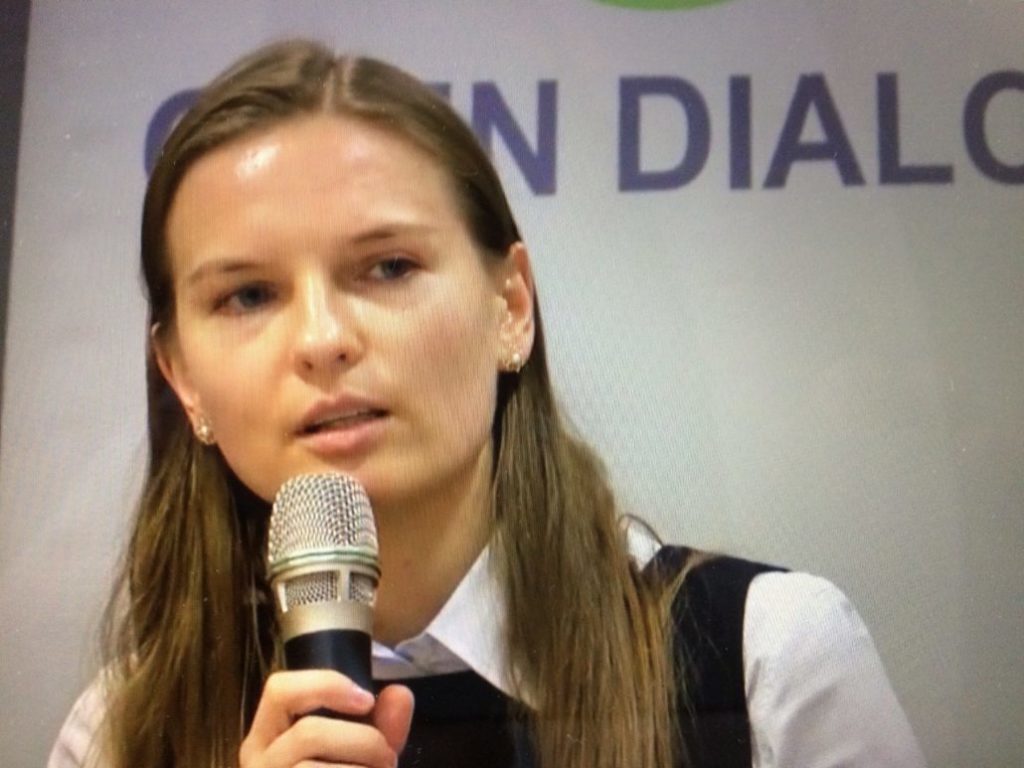
The area around the Lubyanka, the headquarters of Russia's intelligence services - the FSB - in Moscow.
A recent report accuses the controversial human rights NGO Open Dialogue Foundation (ODF), the purpose and activities of which are concealed behind a mask of human rights advocacy, and its head Lyudmyla Kozlovska of having “relationships with and obligations towards agents of the intelligence services of the Russian Federation” making them a tool for soft power intervention, according to an article published by EU Today.
Recently, growing numbers of members of European institutions have become puppets and tools of the hidden political propaganda of controversial human rights NGO Open Dialogue Foundation (ODF), the purpose and activities of which are concealed behind a mask of human rights advocacy.
Who are you, Ms Kozlovska?
Following the emergence of the Warsaw-based ODF, certain members of the Council of Europe began to engage with the NGO, and started expressing dissatisfaction with post-Soviet republics, such as Moldova and Kazakhstan.
The head of ODF, Lyudmyla Kozlovska, is a well-known personality among human rights activists and, thanks to alleged financial support from convicted fraudsters and murderers, including Vyacheslav Platon, Mukhtar Ablyazov, Nail Malyutin, and Aslan Gagiyev, has become acquainted with many influential European figures.

Lyudmyla Kozlovska
Ms Kozlovska (pictured) represents herself as a supporter of civil society, who allegedly protects human rights, but instead acts as a lobbying force on behalf of ODF’s patrons, most of who appear to share something in common; convictions for money laundering. ODF defends these people’s interests on the political platforms of the European Union portraying them as politically persecuted oppositionists. It has been alleged that European politicians have been paid for criticising Moldova and Kazakhstan.
ODF itself was the subject of a special investigation by the Sunday Times, published in April of this year. Journalists concluded that ODF was implicated in the laundering of more than £26 million through Scottish companies, some £1.5 million of which allegedly found its way into ODF coffers. At the same time, Kozlovska is the subject of investigations initiated against her in Poland, Ukraine and Moldova.
On April 21st, 2019, the British Sunday Times published an article containing the main thesis of a report prepared by the Moldovan parliamentary committee… I would like to examine the involvement of the Open Dialog Foundation in the internal affairs of this country and the financing of certain political parties. As reported by the Sunday Times journalists, Moldovan parliamentarians accuse the activists of ODF of acquiring £1.5 million from Scottish front companies in exchange for lobbying for oligarchs. In their opinion, these companies had to “launder” a total of about £26 million, which was intended to finance organisations suspected of cooperating with Russian intelligence and acting to destabilise countries remaining in opposition to the Russian Federation.
Polish State Secretary for Foreign Affairs Szymon Szynkowski – April 25th 2019
Moldovan investigation
A commission of inquiry by the Moldovan Parliament, published last November, concluded that Kozlovska and her NGO were “involved in subversive activities directed against the institutions of the Republic of Moldova, which is funded and orchestrated by special services that are hostile to the state”.
Its report alleged Kozlovska and the ODF had been funded from transactions with Russian military companies banned from trading in America and the EU under international sanctions, as well as from “the supply of military equipment to states involved in regional conflicts”. Payments also came from offshore areas of dubious unknown routes and origins and from “Laundromat” money-laundering schemes, it said.
The report added: “The sophisticated mechanism through which the ODF is funded bears all the hallmarks of a money-laundering scheme and indicates practices involving financial intelligence which only the special services employ.
In reality, the ODF and Lyudmyla Kozlovska are a vehicle for lobbying and influencing various international institutions and for protecting and furthering the interests of certain persons with a dubious past, usually with considerable wealth originating from fraud and money laundering, contrary to the law.
Moldovan Parliament, November 2018
The report accuses the ODF and Kozlovska of having “relationships with and obligations towards agents of the intelligence services of the Russian Federation and are dependent on them . . . making them a tool for soft power intervention which is used by the special services of the Russian Federation in the hybrid war that has begun to be waged against states regarded by it as enemies of the geopolitical interests of the Russian Federation in Eastern Europe”.
Open Dialogue and MPs.
A former employee of the ODF, who for obvious reasons remains anonymous, has stated that the main focus of the foundation is on Kazakhstan. Kazakh oligarch Mukhtar Ablyazov, who was convicted of the embezzlement of some $7.6 billion from Kazakhstan’s BTA bank, as well as the murder of his predecessor, is trying through Kozlovska to create a network within the Parliamentary Assembly of the Council of Europe.
Their goal is to create a climate of suspicion based on slander and to form a network of MPs who will interfere in the political processes in Kazakhstan. It can be said that the Foundation partially managed to form an opinion among some MPs that Ablyazov and his associates are fighters for democracy, and that in Kazakhstan there is still a dictatorial regime.
Meanwhile, French MEP Nicolas Bay at a Public Hearing of the European Parliament’s Special committee on financial crimes, tax evasion and tax avoidance (known as TAX3) openly named Ablyazov of having “launched a foundation called Open Dialogue… there are now very real questions about the funding of the activities of that Foundation”.
“All too often” the deputy continued, “perpetrators of white-collar crimes are able to pass themselves off as victims”, referring to ODF’s presentation of Ablyazov and others implicated in his crimes, as persecuted political oppositionists, and victims of human rights violations.
Italian Senator Roberto Rampi, German MP Frank Schwabe, Austrian Member of Parliament Stefan Schennach, as well as Dutch parliamentarian Pieter Omtzigt, however, have accepted ODF’s version of reality.
Another figure of interest in this story is president of the Italian League for Human Rights rights Antonio Stango who last year visited Kazakh businessman Iskander Yerimbetov, who is currently under investigation on suspicion of money laundering in jail. Yerimbetov and his sister Bota Jardemalie, a former sidekick of Ablyazov and currently resident in Brussels. Jardemalie is also accused of money laundering offences.
For instance, Frank Schwabe, who is a chair of Socialists, Democrats and Greens Group in the Parliamentary Assembly of the Council of Europe, actively campaigns among party members to support all Kozlovska’s initiatives.
He appears indifferent to the facts that the head of ODF is suspected of having connections with the Kremlin and the Foundation itself is involved in money laundering activity.
Schwabe helped Kozlovska obtain a temporary visa to Germany, after Poland’s Internal Security Agency expressed “serious doubts” about the financing of ODF, placing her on a Schengen blacklist, stating that she poses a security threat following allegations that she works for Russian interests.
Some of those with whom ODF cooperates are not known for the consistency of their views. Dutch politician Pieter Omtzigt, who become a member of the PACE in 2010, at first expressed his concern about the political situation in Armenia during the first two years of his deputy. Suddenly, in 2012, he completely abandoned his previous statements and began to criticise Azerbaijan, expressing concern about the human rights situation in the country.
Austrian MP Stefan Schennach, another supporter of Ablyazov and Kozlovska, was himself involved in a corruption scandal in the framework of PACE, according to the April 2018 report of the Independent Investigation Body on the allegations of corruption within the Parliamentary Assembly.
Schennach was found to have breached the Code of Conduct for rapporteurs of the Parliamentary Assembly, and the Code of Conduct of the Monitoring Committee, as well as the PACE Code of Conduct.
In addition, the Centre for the Study of Corruption and Organised Crime (OCCRP), in collaboration with Transparency International and several European media organisations, published a report, which claims that the ruling elite of Baku through fictitious companies “laundered” a $2.9 billion to bribe European politicians and purchase luxury goods.
The establishment of partnerships between deputies belonging to one or more parliamentary groups can give a positive result. It is very important when different movements unite to protect rights, promote democracy and develop the system of government, overcoming political differences.
It is absolutely normal when representatives of civil society or non-governmental organisations participate in political debates and from time to time cooperate with parliamentarians. However, the above facts concerning the “human rights” activities of the above-mentioned MPs are far from their true desire to protect the great and noble ideals of the great European family.
In general, the statements of such politicians are used by the oligarchs Platon and Ablyazov in the struggle for power. It is clearly in the public interest to inquire into the connections of parliamentarians with controversial NGOs, such as ODF. As a result of such connections trust in the Council of Europe has been severely undermined.
Original source: NEWEUROPE




